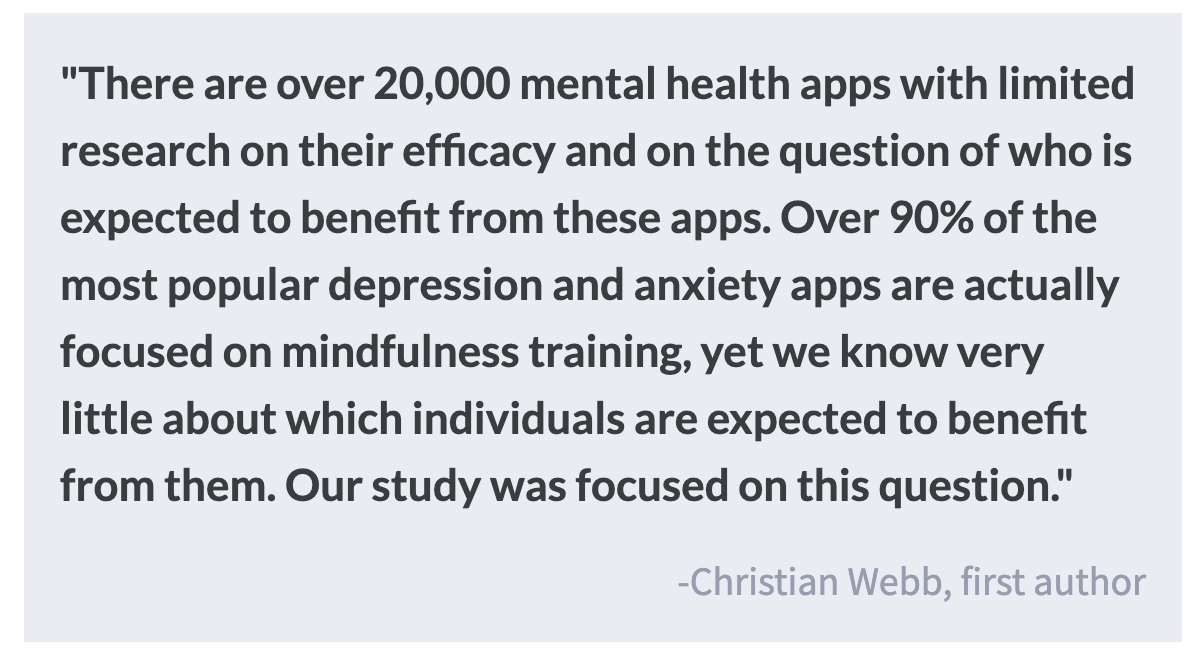Using Machine Learning to Predict Individual Responses to Meditation App Use
Post by Megan McCullough
The takeaway
Machine learning algorithms may be helpful in determining which individuals have the most potential to benefit from the use of meditation apps.
What's the science?
Recently, there has been a rise in users of mental health apps that provide meditation and mindfulness training. Despite this increase in popularity, there is limited research describing who might be most likely to benefit from a meditation app. Machine learning is a helpful tool for predicting health outcomes and previous mental health research has used machine learning to predict patient responses to various treatments. This week in The Journal of Medical Internet Research, Webb and colleagues aimed to develop and test a machine learning algorithm to predict which individuals from a randomized control trial would benefit the most from a meditation app.
How did they do it?
Participants included 666 adults recruited from employees in a Wisconsin school district. Participants were randomly assigned to either use of a meditation app for four weeks, or to an assessment-only control group that did not use the app. In addition to completing a pre-test, all participants completed weekly questionnaires, a post-treatment test, and a follow-up assessment. These assessments were designed to measure psychological distress. The authors developed a machine learning model that predicted the individuals most likely to benefit the most from the use of the meditation app. The baseline assessment results and demographic information were submitted to the algorithm which developed a Personalized Advantage Index (PAI) for each participant, reflecting their expected reduction in distress over the course of the trial. The predictions from the algorithm were then compared to the actual changes in distress over the course of the study.
What did they find?
The authors found that the data-driven model could predict individualized responses to the use of a meditation app. Individuals with more negative PAI scores (indicating a better-predicted prognosis for the mindfulness app) had significantly better outcomes if randomly assigned to the meditation app relative to the assessment-only control condition. The model was able to predict whether individuals will experience reductions in distress as well as the magnitude of this reduction if they were to use a meditation app.
What's the impact?
This study found that predictive models can be useful tools for determining individual responses to the efficacy of a meditation app. This research is a step towards precision medicine, an approach that aims to improve health outcomes by matching patients with treatments that are most likely to be therapeutically beneficial for them (as opposed to the current reliance on trial and error).


